Have you ever caught your cat staring at you with those mysterious, unblinking eyes and wondered, “Am I just the help, or something more?” The answer isn’t as simple as you’d think. Cats are masters of mixed signals, often leaving their humans guessing. Some days you feel loved, other days you feel like a butler. But what if there were real signs—tiny clues in their everyday behavior—that could reveal how your feline truly sees you? Let’s dive into the quirky, heartwarming, and sometimes hilarious world of cat-human relationships and find out: are you family, or just staff?
The Power of the Head Bump

When your cat bumps their head against you, it’s not just a quirky gesture—it’s a powerful message. In cat language, head bunting is a way to mark you as “theirs” using scent glands on their forehead. This is affection at its purest. If your cat frequently bumps their head on you, they’re treating you as family, mixing their scent with yours. It’s a bit like a secret handshake, but furrier. Staff members don’t get this special treatment. So, if you get a head bump, wear it like a badge of honor—it means you’re in the inner circle.
Slow Blinks: The Cat Kiss

Have you noticed your cat slowly closing and opening their eyes while looking at you? That’s not boredom; it’s a feline “I love you.” Slow blinks are a huge sign of trust. Cats don’t close their eyes around just anyone. If you blink back, you’re speaking their language, and you might even see them do it more. This silent exchange is reserved for those they feel safe with—definitely not for the hired help. If your cat gives you these gentle blinks, you’re more than just staff; you’re family.
Following You Around the House
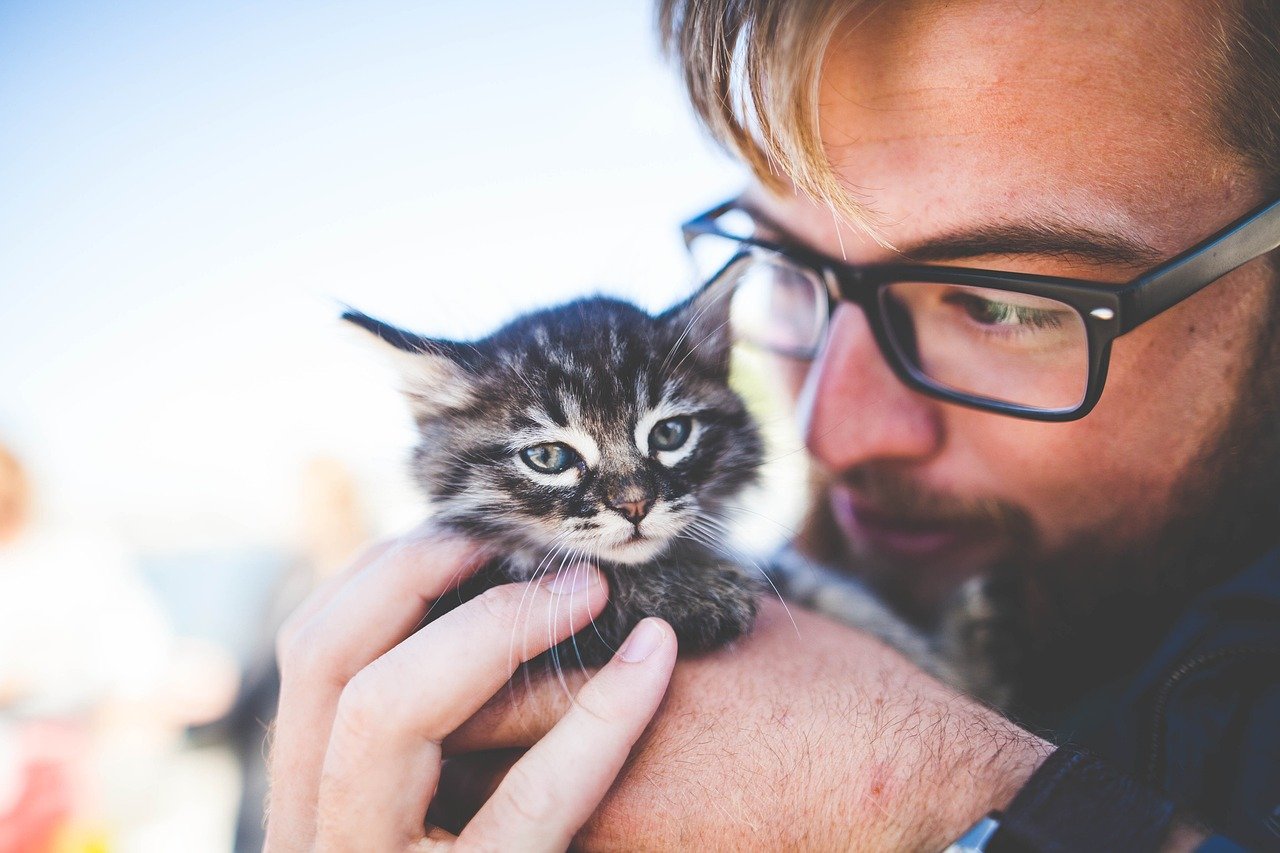
If you can’t escape your cat—even in the bathroom—you’re probably more than just a servant in their eyes. Cats who follow their humans from room to room are expressing a desire to be where you are. This behavior shows attachment and curiosity about your activities. While some might argue it’s because you feed them, most cats are independent enough to skip the show if they aren’t emotionally invested. Being shadowed everywhere is a sign you’re considered part of their social group, not just the one who fills the food bowl.
Bringing You “Gifts”

Whether it’s a toy or, yikes, something from the garden, a cat who brings you gifts is showing you belong to their family group. In the wild, cats bring prey to their kittens or loved ones. At home, those “presents” can be toys, socks, or even bugs. It’s a bit shocking, but also endearing. Staff members don’t get such gifts—only those who are truly part of the family circle. So, next time you step on a plush mouse at 3 a.m., take it as a compliment.
Kneading: The Biscuit Maker
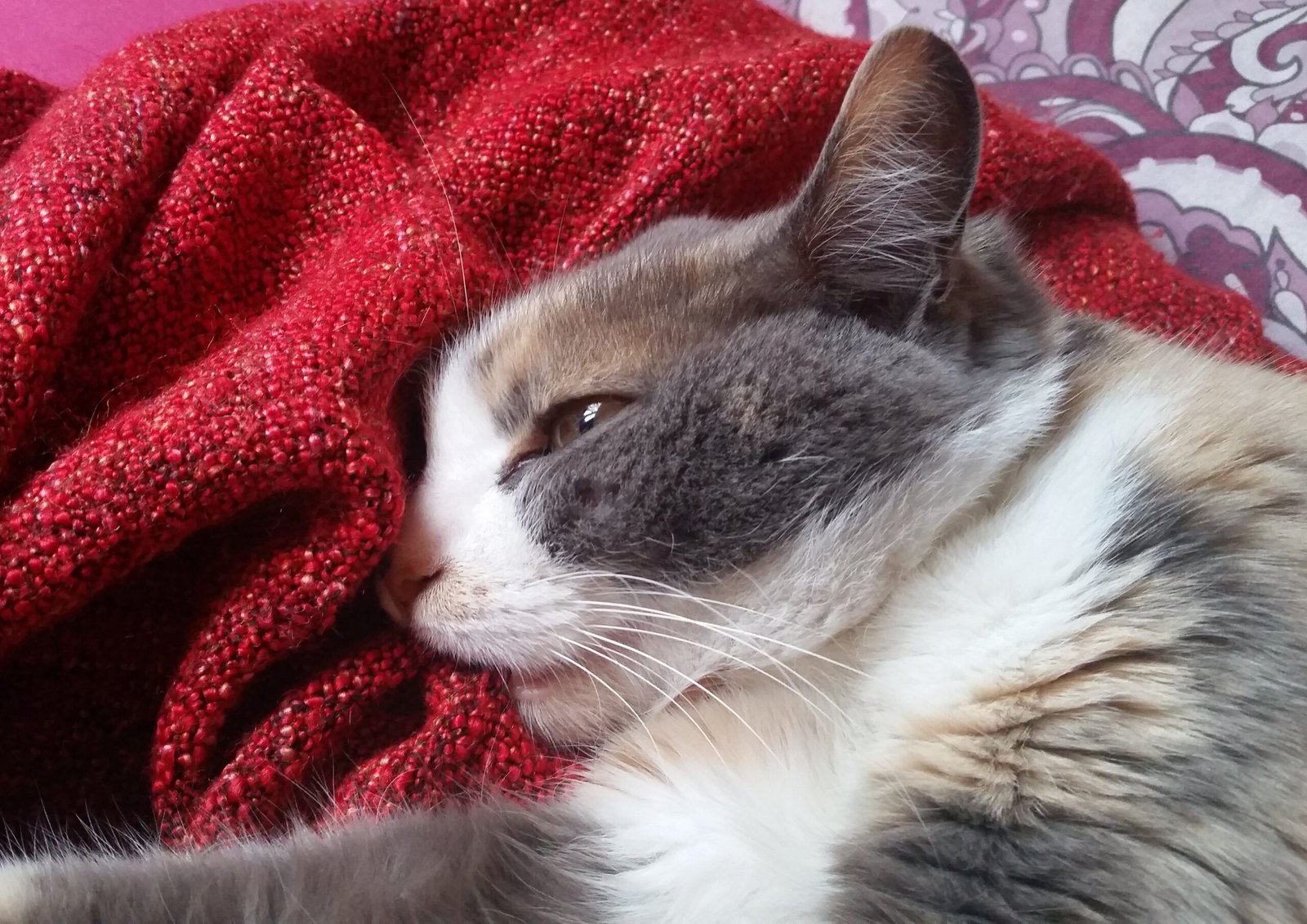
When your cat kneads you with their paws, it’s more than just a quirky habit. This action harks back to kittenhood, when kittens knead their mothers for comfort and milk. Adult cats carry this behavior into later life, but only with those they feel completely at ease with. If your cat chooses your lap as their personal bakery, it’s a sure sign you’re seen as family. Staff don’t get kneaded. This is reserved for the most trusted humans.
Sleeping On or Near You

Cats are picky about their napping spots. If your cat chooses you as their mattress, you’re in their “trusted” category. Sleeping is a vulnerable time for cats, and they only snooze near those they feel safe with. You’re not just a warm body; you’re a trusted presence. Staff might get a nod of acknowledgment, but they don’t get the full-on cat cuddle pile. If your cat curls up on your chest or between your legs, you’re family.
Tail Language: The Upright Signal
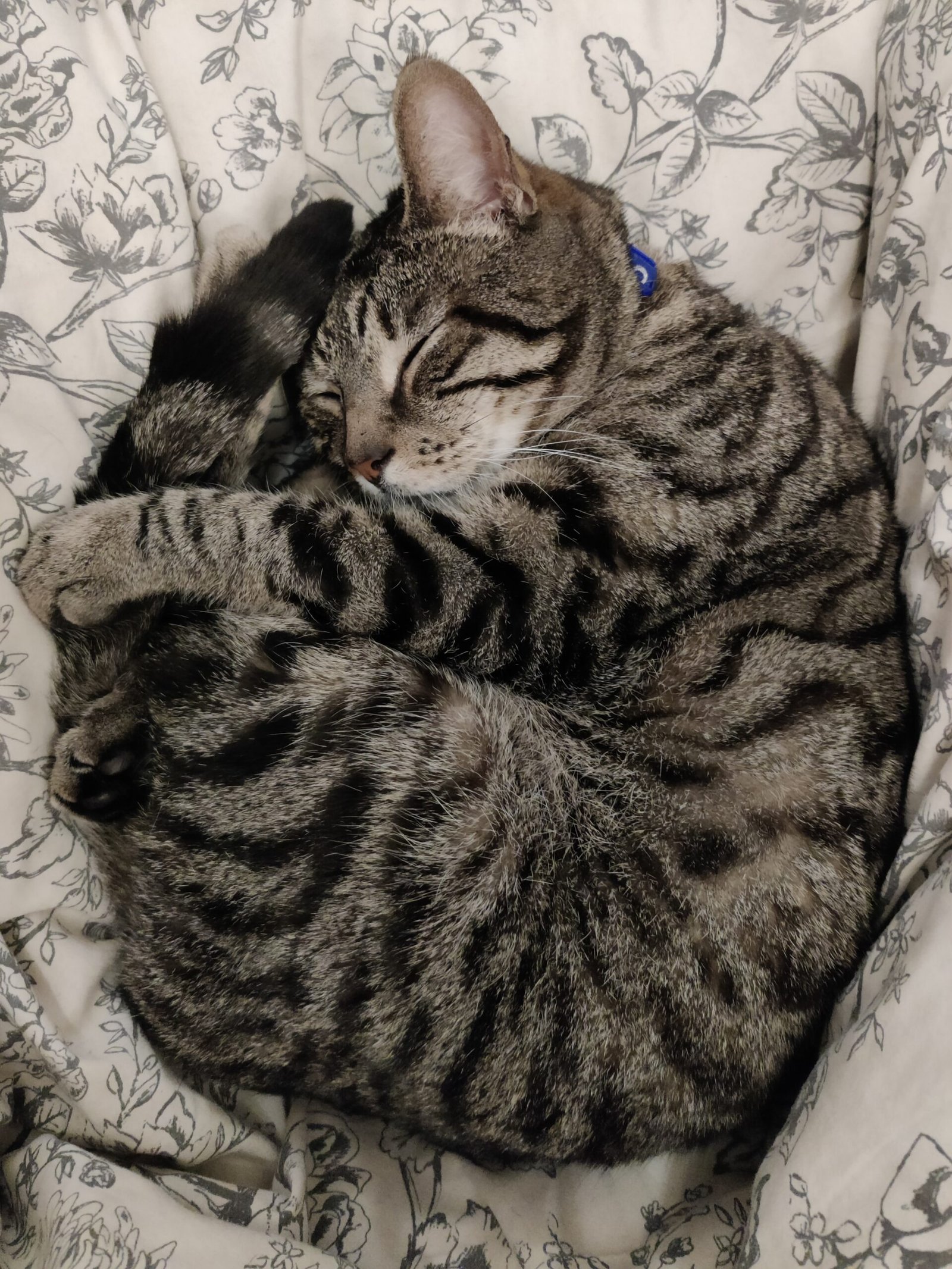
The way a cat carries their tail says a lot. If your cat approaches you with their tail held high and even a little quiver, it’s a happy greeting. This is how cats greet those they like and trust. A tail held low or puffed up, on the other hand, signals fear or defensiveness. If your cat’s tail is up and relaxed when they see you, it’s a sure sign of affection. Staff might get a twitch, but family gets the full “I’m happy you’re here” display.
Vocalizations: The Special Meow

Believe it or not, cats develop unique meows for different humans. If your cat chats with you, especially in a soft or chirpy tone, it’s a sign you’re special. Cats rarely “talk” to each other in the wild—they use vocalizations mainly with humans. If your cat greets you with a special meow or calls out for attention, you’re more than just a caretaker. You’re someone worth talking to. Staff get the generic meow; family gets the custom soundtrack.
Grooming You—Or Letting You Groom
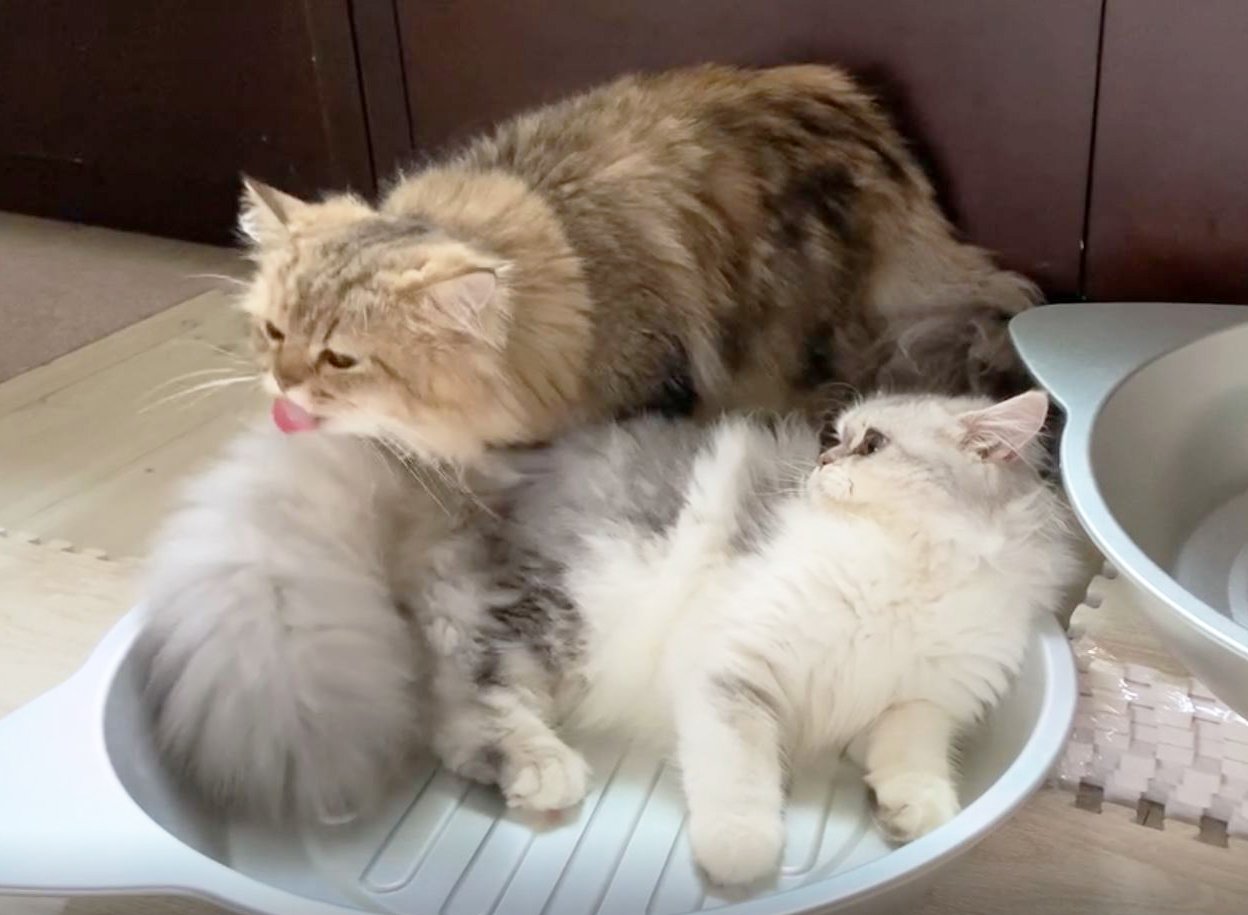
If your cat licks your hand, face, or hair, it’s a big deal. Grooming is how cats bond with those they love. Mutual grooming is a sign of trust and affection. Some cats even allow their humans to brush or pet them in sensitive areas, like the belly or under the chin. This isn’t something cats do for just anyone—they reserve it for those they consider family. If grooming is a two-way street in your house, congratulations, you’ve made the cut.
Exposing the Belly
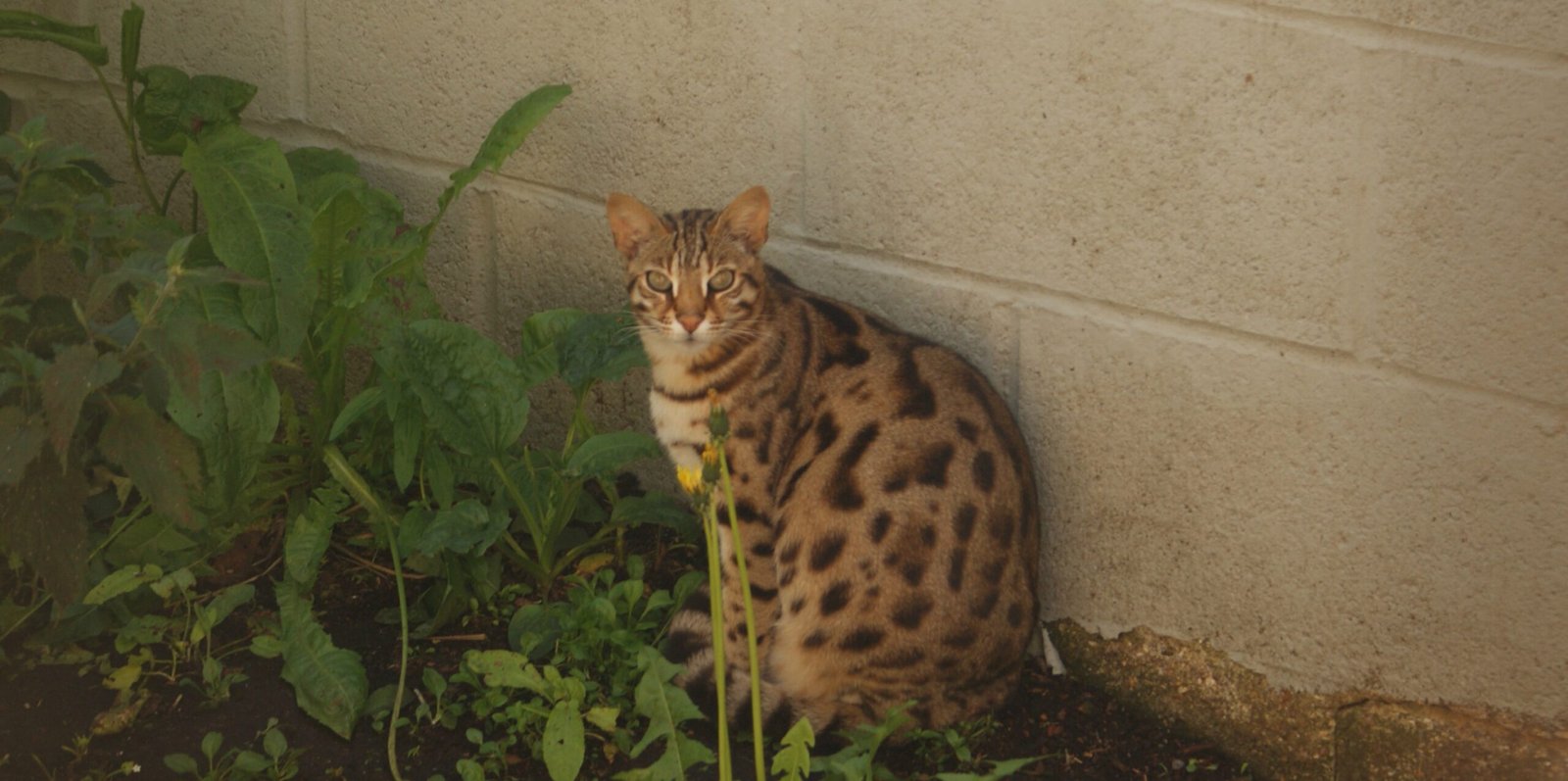
The ultimate sign of trust in the cat world is showing you their belly. This vulnerable pose means they trust you not to harm them. Some cats even invite a gentle belly rub (though proceed with caution—this can change in an instant!). Staff members never see the belly. If your cat rolls over and exposes their soft underside, you’re family in their eyes.
Initiating Playtime
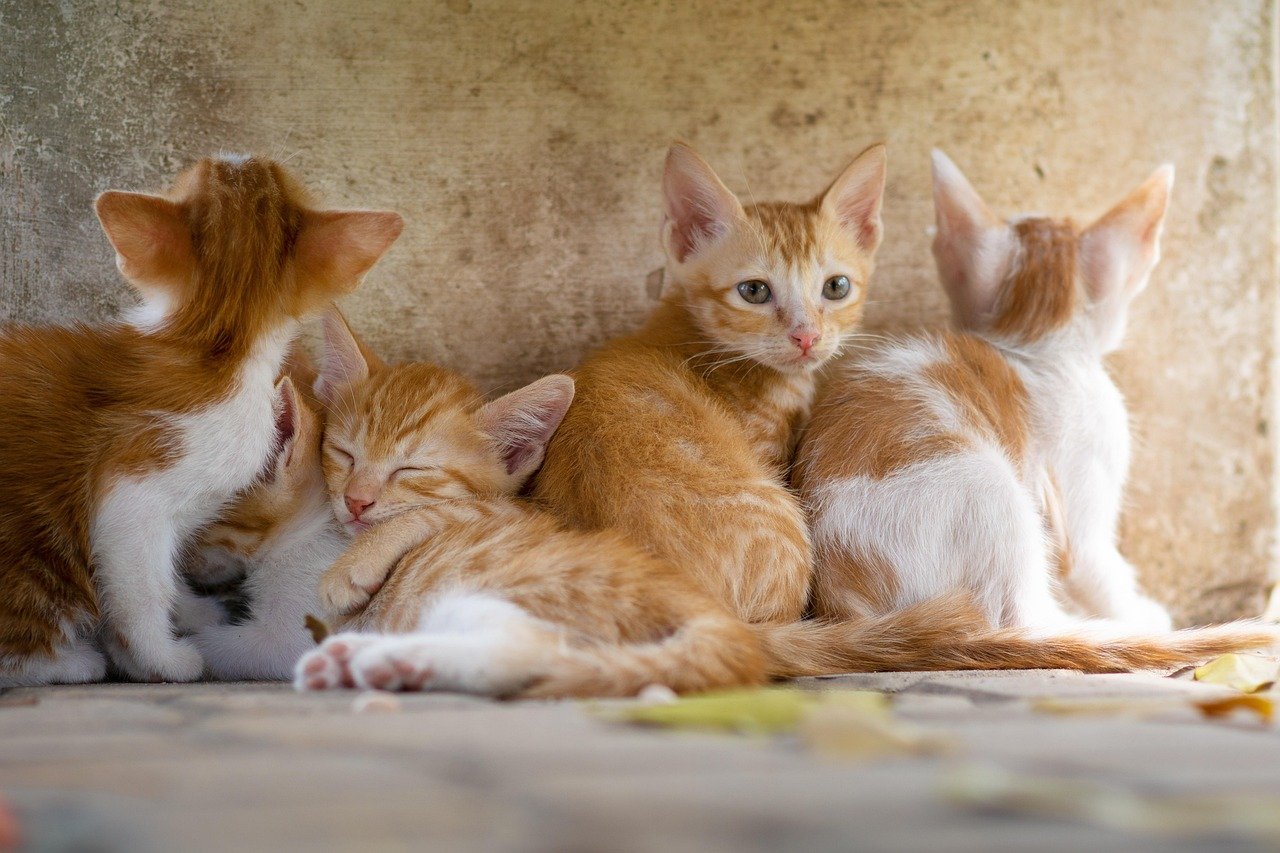
Cats who invite you to play aren’t just burning off energy—they’re bonding. Whether it’s a pounce, a playful bite, or a game of “chase the string,” playtime is a way of connecting. If your cat actively seeks you out to play, it’s a sign they see you as part of their group. Staff might be ignored during playtime, but family gets the full invitation.
Greeting You at the Door
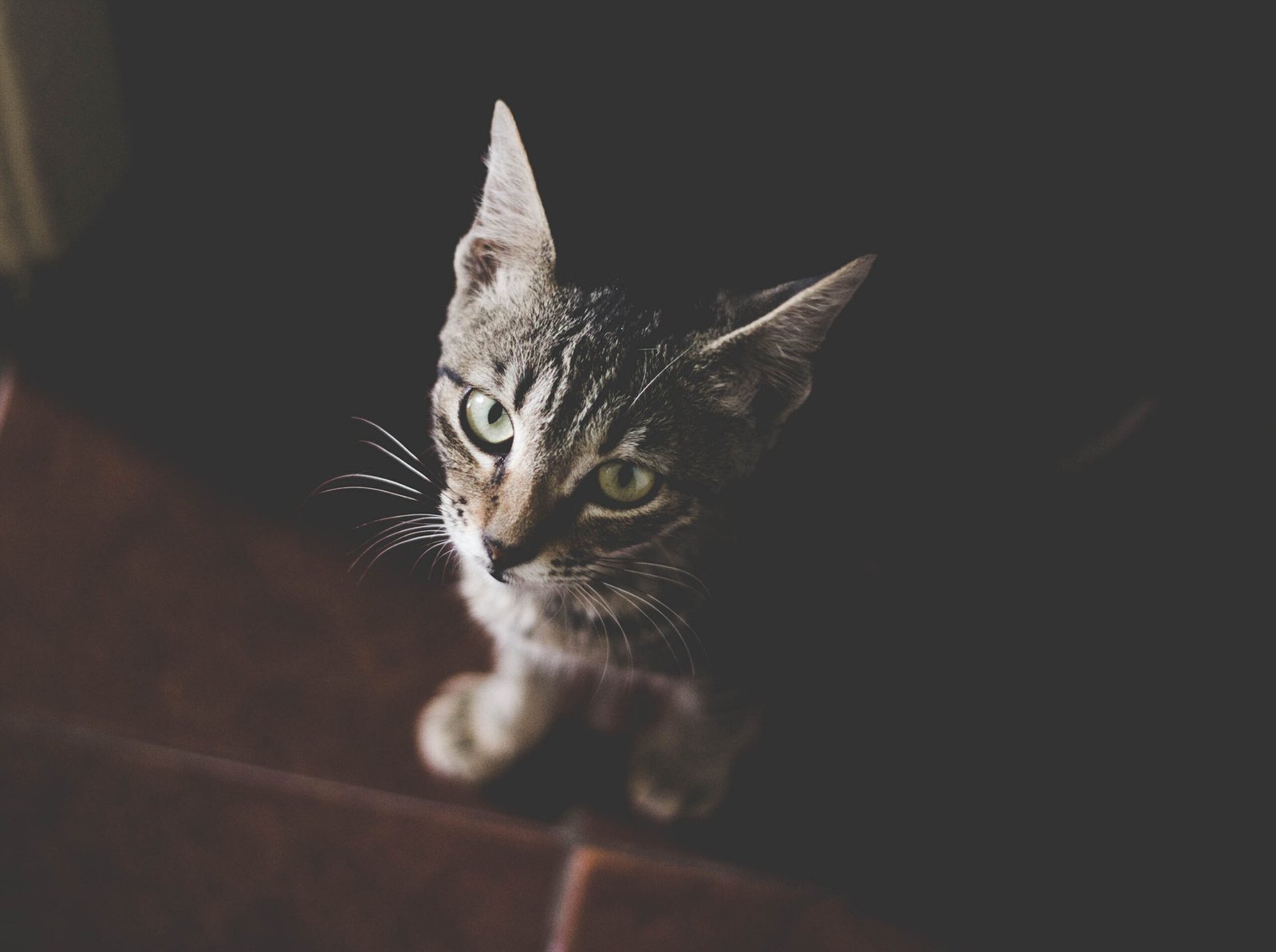
There’s nothing like coming home to a cat waiting for you at the door. This isn’t just about food—it’s about presence. Cats who greet their humans at the door are expressing excitement and happiness at your return. It’s a warm, welcoming gesture that shows you’re missed when you’re gone. Staff might get a glance, but family gets the royal welcome.
Brushing Against Your Legs
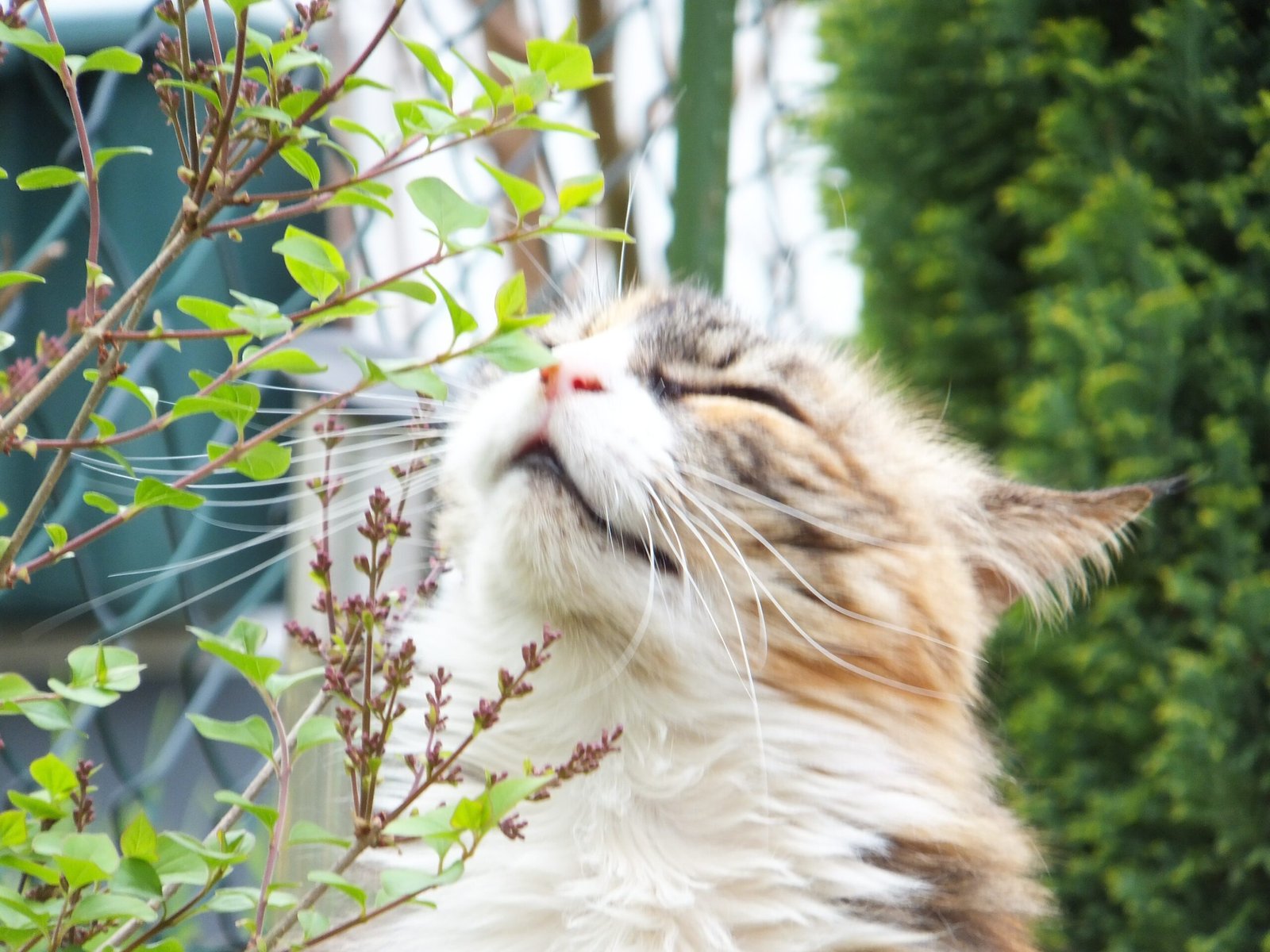
When your cat weaves between your legs or rubs their body against you, they’re marking you as part of their territory. This is more than just a request for food or attention—it’s a social bonding behavior. Cats use scent to communicate, and by rubbing against you, they’re saying, “You belong to me, and I belong to you.” Staff might get a brush-by at mealtime, but family gets it all the time.
Chirping and Trilling

Some cats make adorable chirps and trills, especially when they see their favorite person. These special sounds are reserved for moments of excitement or affection. If your cat greets you with a chirp or a trill, it’s a sign you’re someone important in their world. Staff rarely hear these sweet noises—they’re for family, plain and simple.
Staring—But Not in a Creepy Way
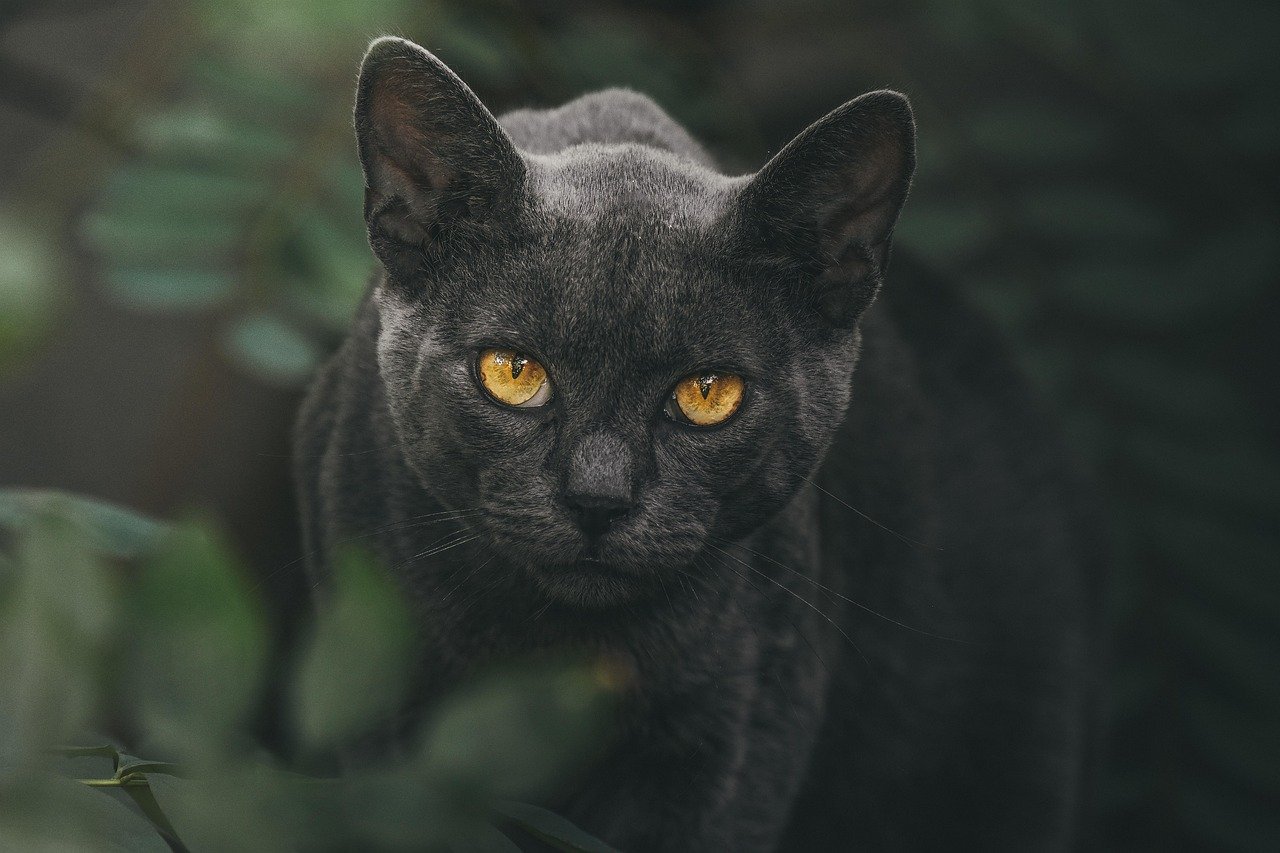
If your cat watches you with soft, relaxed eyes, it’s a good sign. Staring in the animal world can be a threat, but with cats, it can also mean adoration. If your cat gazes at you and blinks slowly, they’re showing trust. A soft stare says, “I’m comfortable with you.” Staff get a glance; family gets the full, loving look.
Scent Sharing: The Cheek Rub
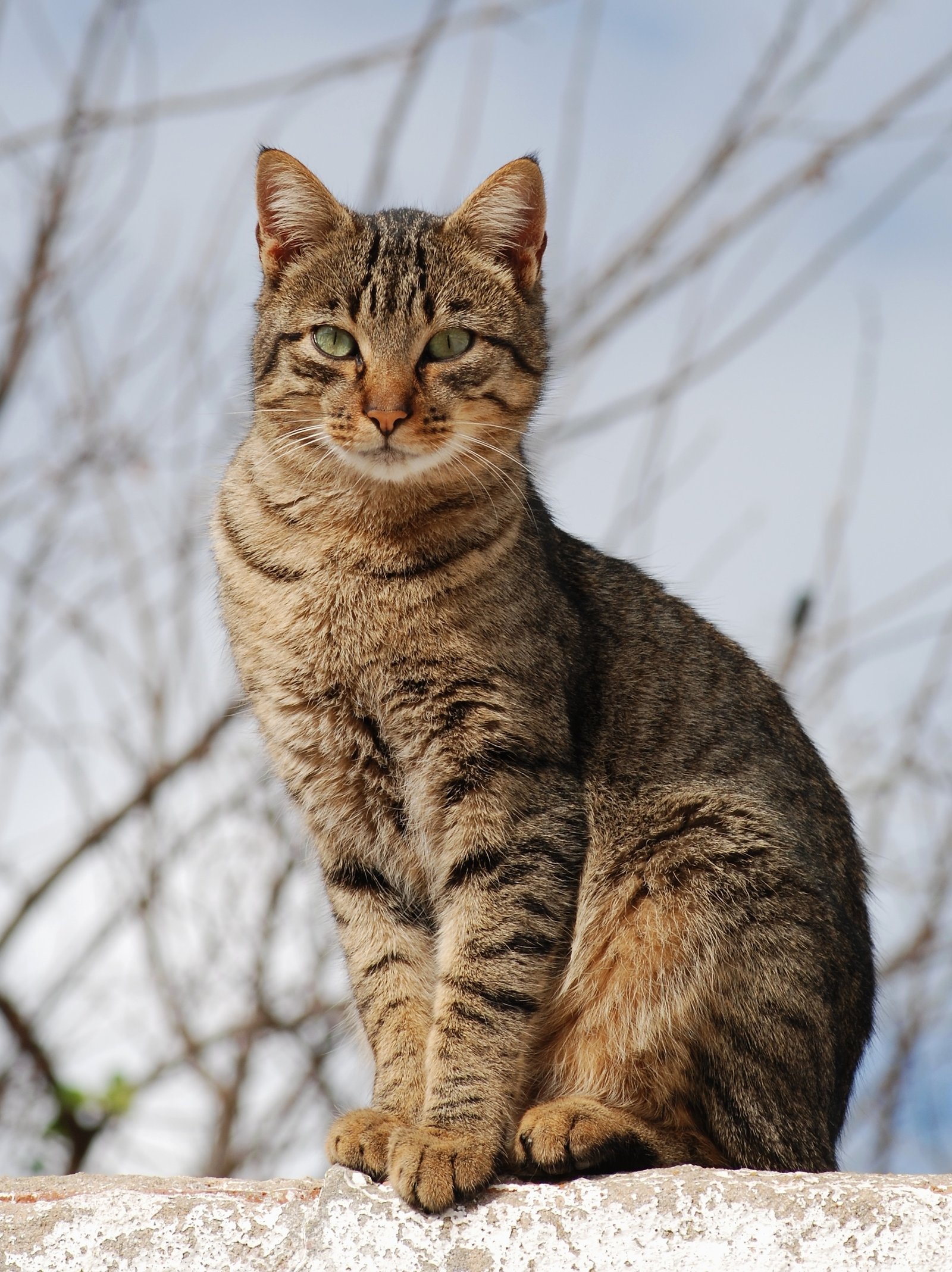
When your cat rubs their cheeks on you, they’re spreading their scent and marking you as part of their group. This is a sign of acceptance and belonging. It’s an intimate gesture, not given lightly. Staff might get a passing rub, but family gets the full face-smush treatment. If your cat rubs their face on you, you’re in.
Allowing Handling and Pick-Ups
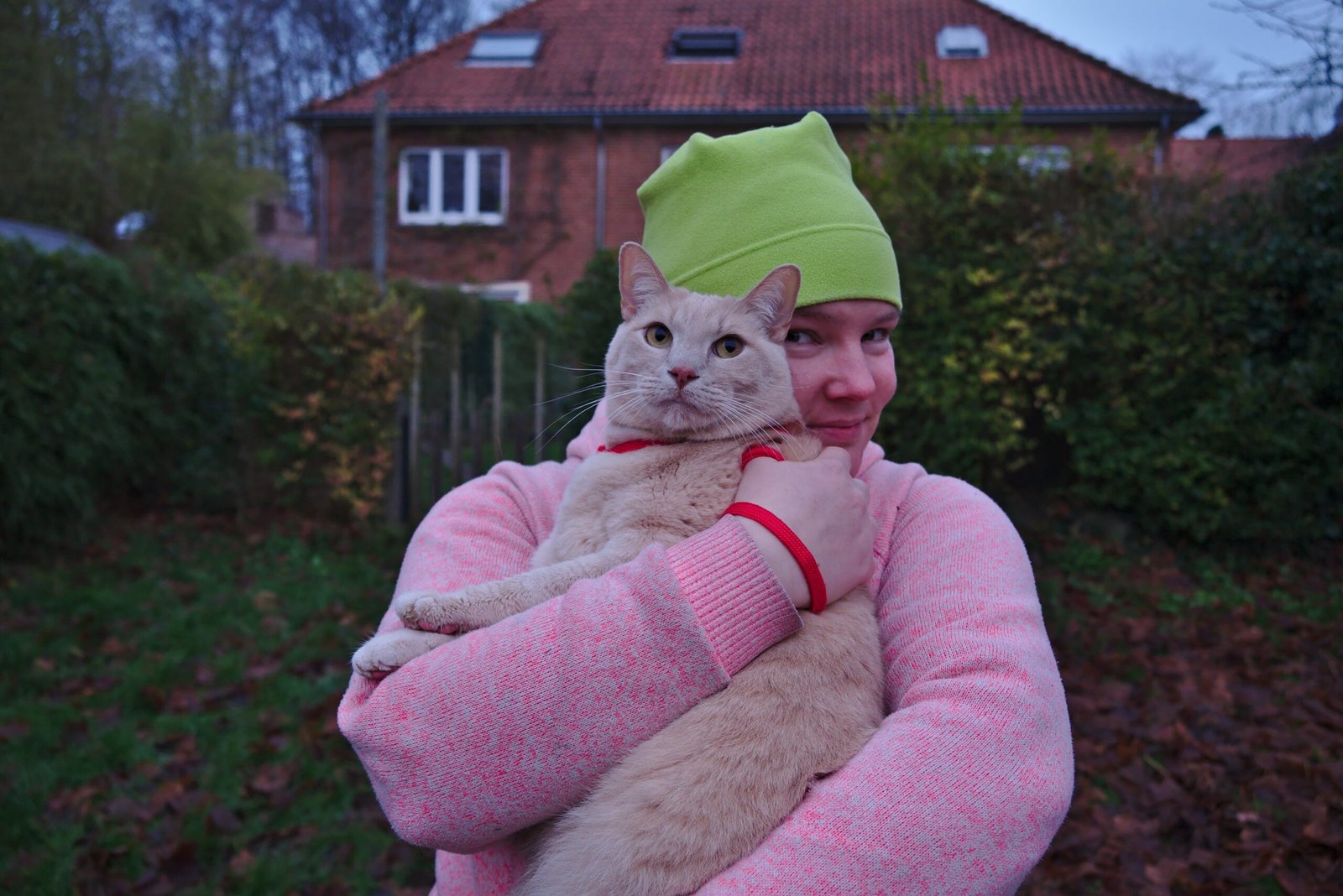
Cats who let you pick them up or handle them without a fuss are showing deep trust. Not every cat likes to be held, but those who do only allow it with people they love. If your cat seeks out your arms or relaxes when you hold them, it’s a sign you’re family. Staff wouldn’t even dare try.
Sharing Their Favorite Spots
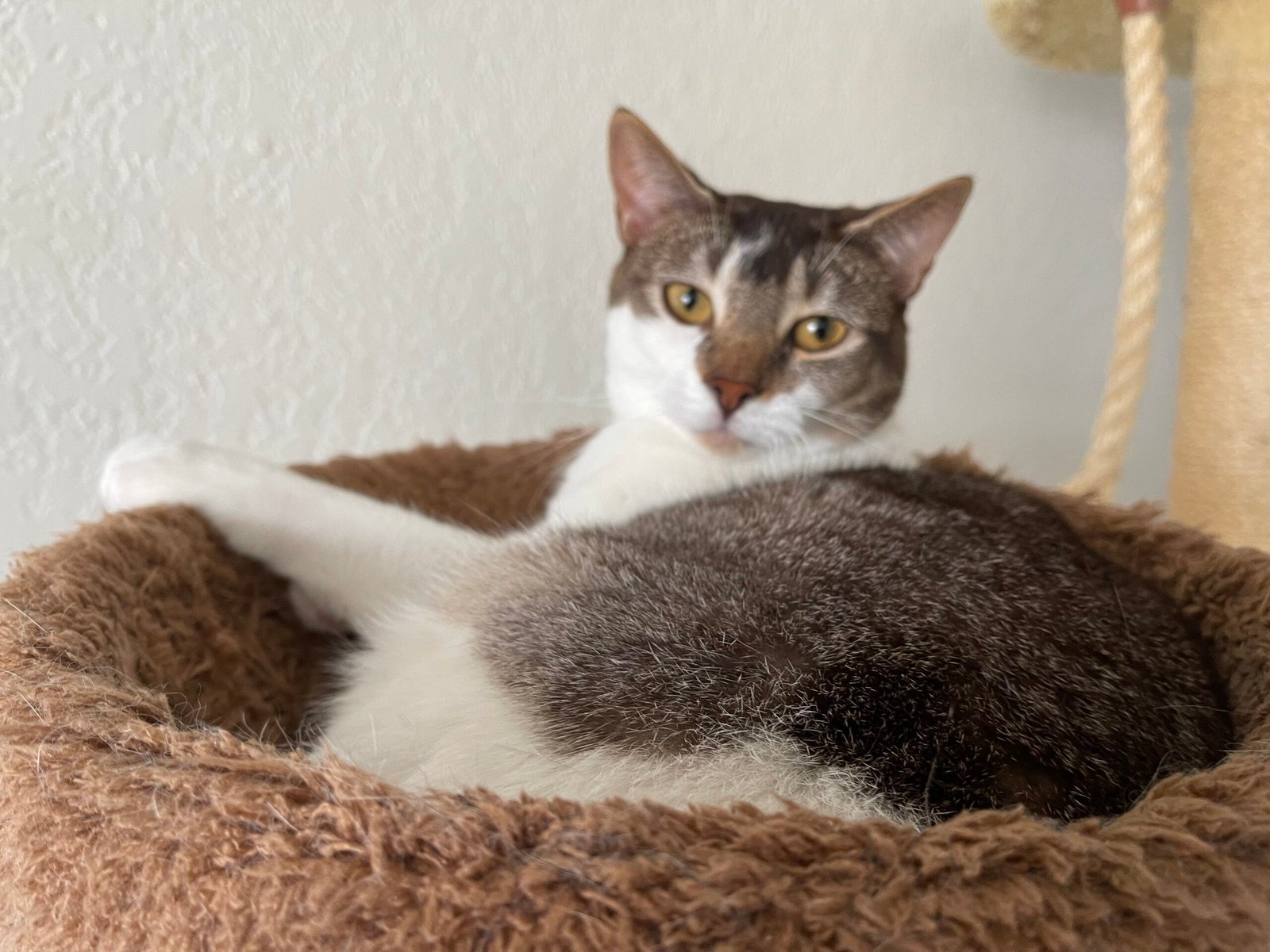
Does your cat invite you to sit with them in their favorite chair or on the bed? Sharing prime real estate is a big compliment. Cats are territorial, and letting you into their chosen spaces means you’re seen as part of the inner circle. Staff don’t get access to the best spots in the house—only family does.
Responding to Your Voice

If your cat comes when you call, perks up at your voice, or responds to their name, it’s a sign of recognition and attachment. Cats are notorious for ignoring commands, but when they choose to respond, it’s meaningful. This shows they value your presence and attention. Staff might get indifference, but family gets engagement.
Protective Behavior

Some cats show protective instincts toward their humans. They might sit between you and a stranger or watch over you when you’re sick. This behavior is rare but telling. A cat who tries to “protect” you, even in their own subtle way, sees you as part of their clan. Staff don’t get a bodyguard—only family does.
Unique Rituals and Routines
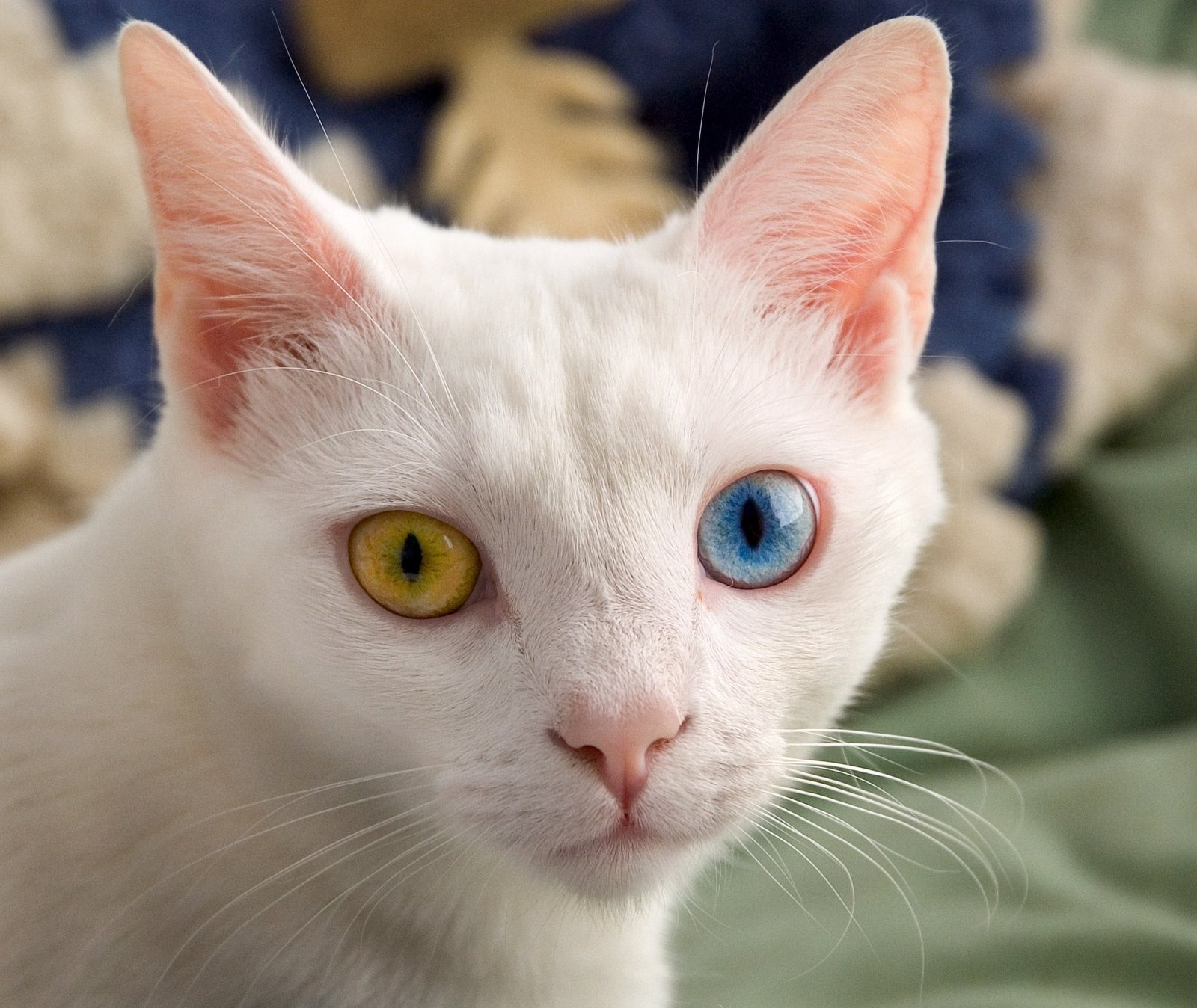
Cats are creatures of habit, and they often develop unique rituals with their favorite humans. This could be a nightly cuddle session, a morning greeting, or a special game. These routines create a sense of belonging and deepen the bond. If your cat has a ritual that’s just between the two of you, it’s a sure sign you’re family, not just staff.
So, after all these signs, you might be realizing: your cat’s feelings for you are deeper than you thought. Maybe you’re not just the one who fills the food dish. Maybe, just maybe, you’re truly family.
Hi, I’m Bola, a passionate writer and creative strategist with a knack for crafting compelling content that educates, inspires, and connects. Over the years, I’ve honed my skills across various writing fields, including content creation, copywriting, online course development, and video scriptwriting.
When I’m not at my desk, you’ll find me exploring new ideas, reading books, or brainstorming creative ways to solve challenges. I believe that words have the power to transform, and I’m here to help you leverage that power for success.
Thanks for stopping by, Keep coming to this website to checkout new articles form me. You’d always love it!






